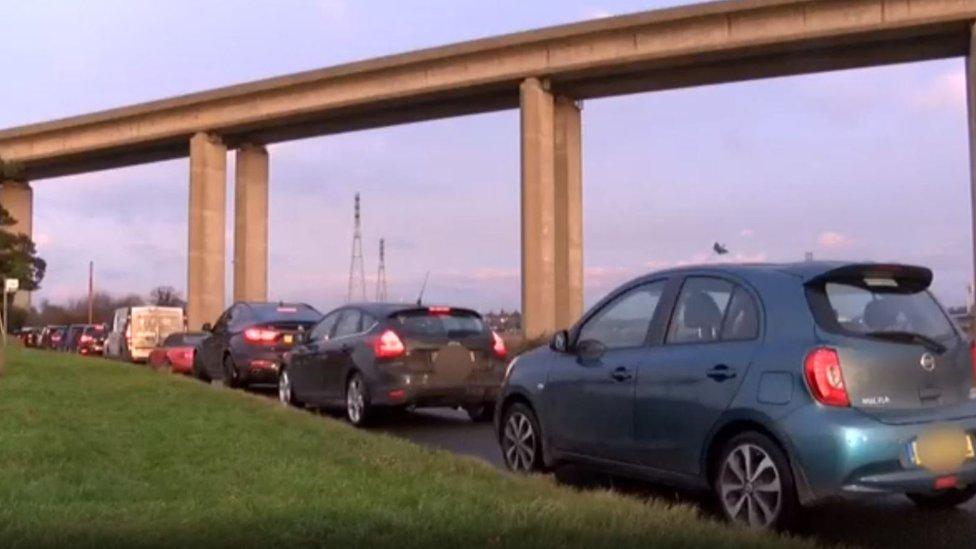A14 Orwell Bridge: 'Lower speed limit would prevent closures'
- Published
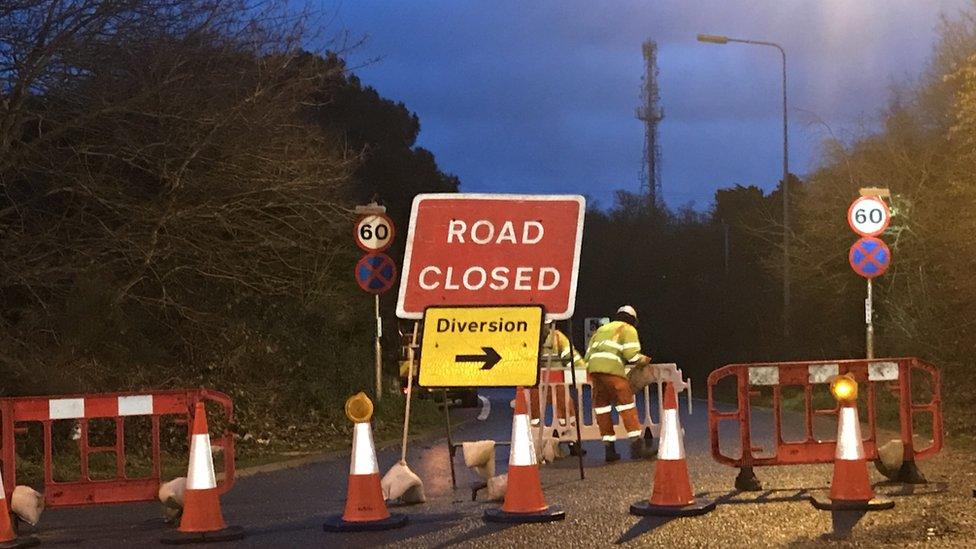
The bridge is closed in high winds to reduce the risk of high-sided vehicles being blown over, such as lorries using the Port of Felixstowe
Reduced speed limits for a major bridge on the A14 will bring down the number of closures due to high winds, highways planners have said.
The Orwell Bridge, which carries the dual carriageway over the river at Ipswich, currently closes when winds get above 50mph (80km/h).
Business leaders claim the closures cost Ipswich £1m a day in lost trade.
Simon Amor of Highways England said a traffic speed limit of 40mph (60km/h) was "the most practical solution".
Councillor Sandra Gage, vice-chairman of Ipswich Borough Council's scrutiny committee, external, said the town was "no further forward after waiting over 15 months" for Highways England's report on the bridge to be published.
She said there were "zero commitments to deliver any improvements", adding it was "not what we were promised", reports the Local Democracy Reporting Service.
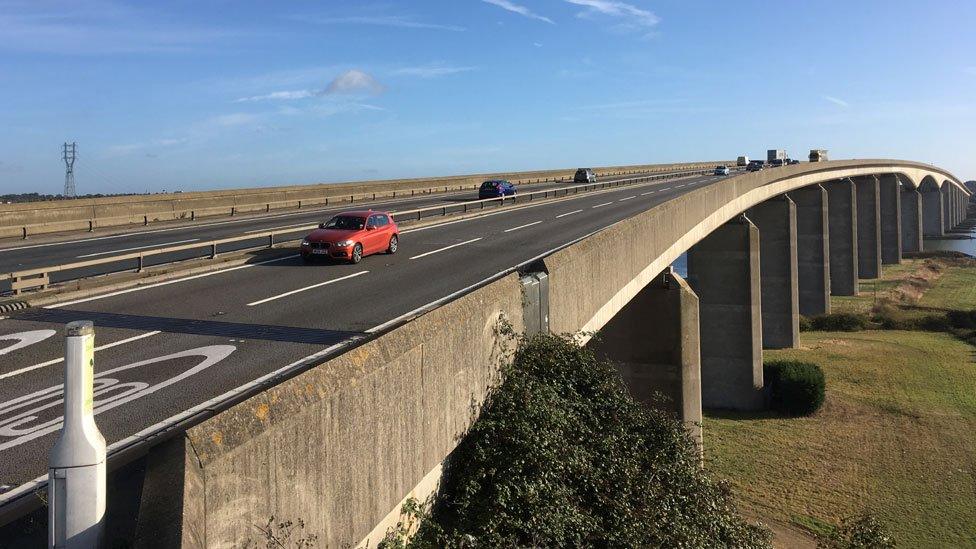
The bridge runs over the River Orwell between junctions 56 and 57 of the A14, serving Felixstowe - Britain's busiest container port
Paul Clement, of the Ipswich Central business group, said last week the £1m cost per day to Ipswich's economy from the closure was calculated from estimates of lost sales and lost productivity.
Mr Amor told the committee the new traffic speed limit would raise the windspeed closure threshold to 70mph (110km/h).
This would have meant that 15 of the 18 wind closures since October 2013 would not have happened.
The bridge currently has a 60mph speed limit for traffic, aimed at reducing accidents which can also lead to bridge closures.
When the bridge is closed, traffic is diverted through Ipswich town centre, causing lengthy delays.
Mr Amor said introducing a new speed limit was "relatively straightforward, obviously it needs to be enforceable so we need the police on board, which they appear to be".
He said there were "statutory processes" but he was "relatively positive" it could be in place by next winter.
Mr Amor said allowing cars to continue using the bridge in windy conditions while diverting high-sided vehicles was "probably a very unlikely solution".
- Published22 January 2020

- Published15 January 2020
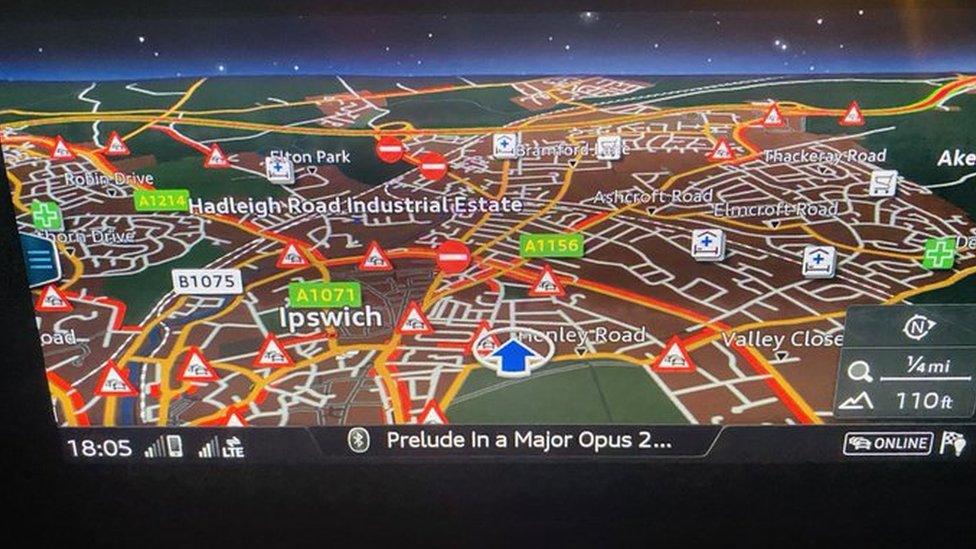
- Published14 January 2020

- Published13 March 2019
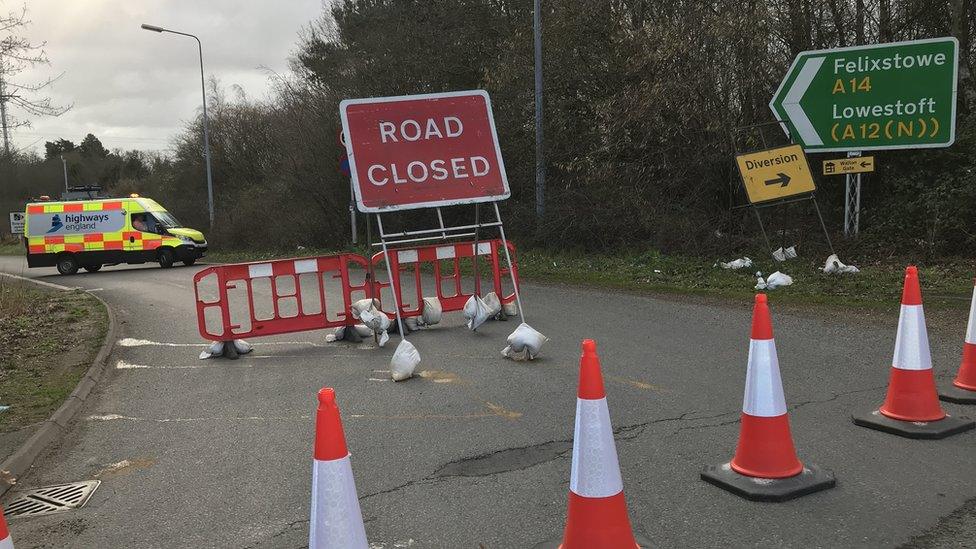
- Published24 November 2018
